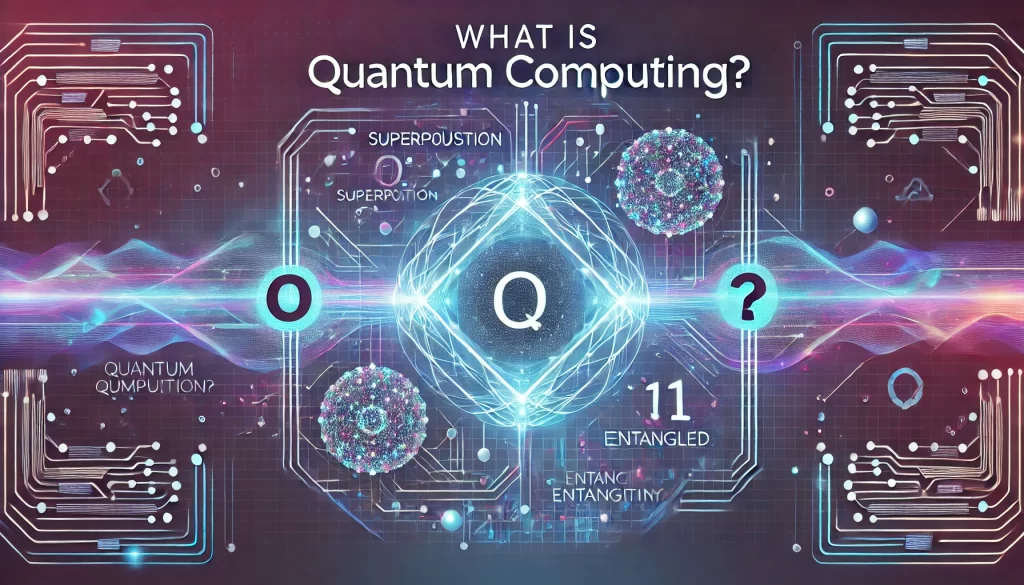
Hi Everyone!
This is Ravi and today, I will let you know about Quantum Computing.
Quantum computing is a revolutionary technology that leverages the principles of quantum mechanics to process information in fundamentally different ways than traditional computing. While classical computers use bits as the smallest unit of information, quantum computers use quantum bits, or qubits, which can exist in multiple states simultaneously. This allows quantum computers to perform complex calculations at speeds that are unattainable by classical computers.
The Basics of Quantum Mechanics

To understand quantum computing, it’s essential to grasp the basics of quantum mechanics, the branch of physics that studies the behavior of matter and energy at the atomic and subatomic levels. Here are a few key concepts:–
- Superposition: Unlike classical bits that are either 0 or 1, qubits can be both 0 and 1 simultaneously due to superposition. This property allows quantum computers to process a vast amount of information at once.
- Entanglement: This is a phenomenon where qubits become interconnected such that the state of one qubit instantly influences the state of another, no matter the distance between them. Entangled qubits can perform coordinated actions, providing quantum computers with immense computational power.
- Quantum Interference: Quantum algorithms exploit interference patterns to amplify the probabilities of correct solutions and cancel out the wrong ones, leading to faster problem-solving capabilities.
How Quantum Computers Work
Quantum computers are built on quantum circuits that use qubits as their fundamental units. These circuits leverage quantum gates to manipulate qubits and perform calculations. A quantum algorithm, like Shor’s algorithm for factoring or Grover’s algorithm for searching, is executed by a series of quantum gates arranged in a specific order.
Quantum Gates
Quantum gates are the building blocks of quantum circuits. They are analogous to classical logic gates but operate on qubits. Examples include:-
- Pauli-X Gate: Similar to the NOT gate in classical computing, it flips the state of a qubit.
- Hadamard Gate: Creates superposition, allowing a qubit to be in a state of 0 and 1 simultaneously.
- CNOT Gate: An entangling gate that flips the state of a target qubit if the control qubit is in state 1.
Types of Quantum Computers
- Superconducting Qubits: These use superconducting circuits to create and manipulate qubits. Companies like IBM and Google use this approach.
- Trapped Ions: This method uses ions trapped in electromagnetic fields to serve as qubits. IonQ and Honeywell are leaders in this technology.
- Topological Qubits: A theoretical approach that uses quasi-particles to create stable qubits, being researched by Microsoft.
Applications of Quantum Computing

Quantum computing has the potential to revolutionize several fields:-
- Cryptography: Quantum computers can break classical encryption methods, necessitating the development of quantum-safe cryptography.
- Drug Discovery: Quantum simulations can model molecular interactions more accurately, accelerating drug discovery and development.
- Optimization Problems: Quantum algorithms can solve complex optimization problems in logistics, finance, and supply chain management more efficiently than classical algorithms.
- Artificial Intelligence: Quantum computing can enhance machine learning algorithms, leading to faster training times and improved AI capabilities.
Challenges in Quantum Computing
Despite its potential, quantum computing faces several challenges:-
- Decoherence: Qubits are highly sensitive to their environment, which can cause errors in calculations.
- Error Correction: Developing efficient quantum error correction methods is crucial for reliable quantum computing.
- Scalability: Building quantum computers with a large number of qubits while maintaining their coherence and connectivity is a significant engineering challenge.
Conclusion
Quantum computing represents a paradigm shift in how we approach computational problems. By harnessing the strange and powerful principles of quantum mechanics, quantum computers have the potential to solve problems that are currently intractable for classical computers. As research and development continue, we are likely to see groundbreaking applications that could transform industries and society as a whole.